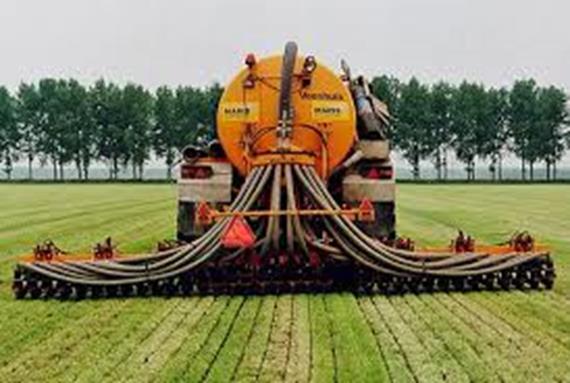Agricultural Revolution through ICT
AGRICULTURAL REVOLUTION THROUGH ICT
Information and Communication Technology (ICT) is defined by the World Bank as any device, tool, or application that permits the exchange or collection of data through interaction or transmission. Already, in the agricultural and food sectors of many countries, ICT companies, multinational farm input business, large machinery manufacturers, but also small and medium farm input suppliers provide a number of services to farmers through ICTs, including extension advice.
Downstream, supermarket and agricultural product buyers also engage in the food value chain through ICTs, where the technology is also used by farmers’ cooperatives, international organizations, the civil society and governments to effectively provide information on many aspects of farming, including regulation. In a number of cases, ICTs form an integral part not only of information flows, actual farming operations and food processing from testing the soil in the farm to using 3D printers to process food. Nevertheless, the digital divide between developing and developed countries is nowhere more evident than in agriculture. Across the developing world, rural communities are at a fundamental disadvantage to access this knowledge. When farming their plots of land, smallholders are economic agents that make their choices using all of the information available to them. Based on this information, they choose what to plant, which inputs to use and how, when to plow, to seed, to harvest; how much to keep for consumption in the household and how much to sell to raise cash, or how much to store. They often make their choices in an adverse economic environment in which markets do not function well, and where very little information is available to inform them in time for their decisions. As a result, their choices are often not optimal.
 (Picture from google image)
(Picture from google image)
ICTs can play a crucial role in bridging this critical information and knowledge gap. In agriculture and food sectors across the world, ICT companies, multinational farm input business, large machinery manufacturers, but also small and medium farm input suppliers provide a number of services to farmers through ICTs, including extension advice. Downstream, supermarkets and agricultural product buyers also engage in the food value chain through ICTs, where the technology is also used by farmers’ cooperatives, international organizations, the civil society and governments to effectively provide information on many aspects of farming, including regulation. In agriculture, ICTs can bring significant benefits through better information on markets. Prices signal opportunities to producers, consumers, and traders — such as when excess demand is creating more profitable opportunities to sell or when excess supply leads to cheaper deals. They also reflect changing consumption patterns and contain information that can be used by farmers when they decide what and how much to produce. With increased access to mobile phones, farmers can better plan production and investments, based on supply-and-demand fundamentals, thus increasing market efficiency. Indeed, facilitating market access through the provision of information on prices is the most frequent ICT application on agriculture.
 (Picture from google image)
(Picture from google image)
ICTs can increase smallholder’s access to timely extension information while addressing many of these challenges by reducing the cost of extension visits, enabling more frequent two-way communication between farmers and agents, and improving agents’ accountability. ICTs also enhance access to private information from social networks, thus facilitating learning from one’s peers, which is crucial for technology adoption. By increasing communication linkages between farmers, extension agents, and research centers, ICTs can improve the flow of relevant information among all these agentsThe effects of climate change are already impacting agriculture, making the challenge of achieving food security and improving nutrition increasingly difficult. In the face of such challenges, information is key to preparedness; for farmers, this could mean the difference between a successful or a failed harvest. ICT-based tools related to climate change issues and early warning can assist in reducing the risks faced by smallholders.

Congratulations @certifiex! You received a personal award!
Click here to view your Board
Do not miss the last post from @steemitboard:
Congratulations @certifiex! You received a personal award!
You can view your badges on your Steem Board and compare to others on the Steem Ranking
Vote for @Steemitboard as a witness to get one more award and increased upvotes!